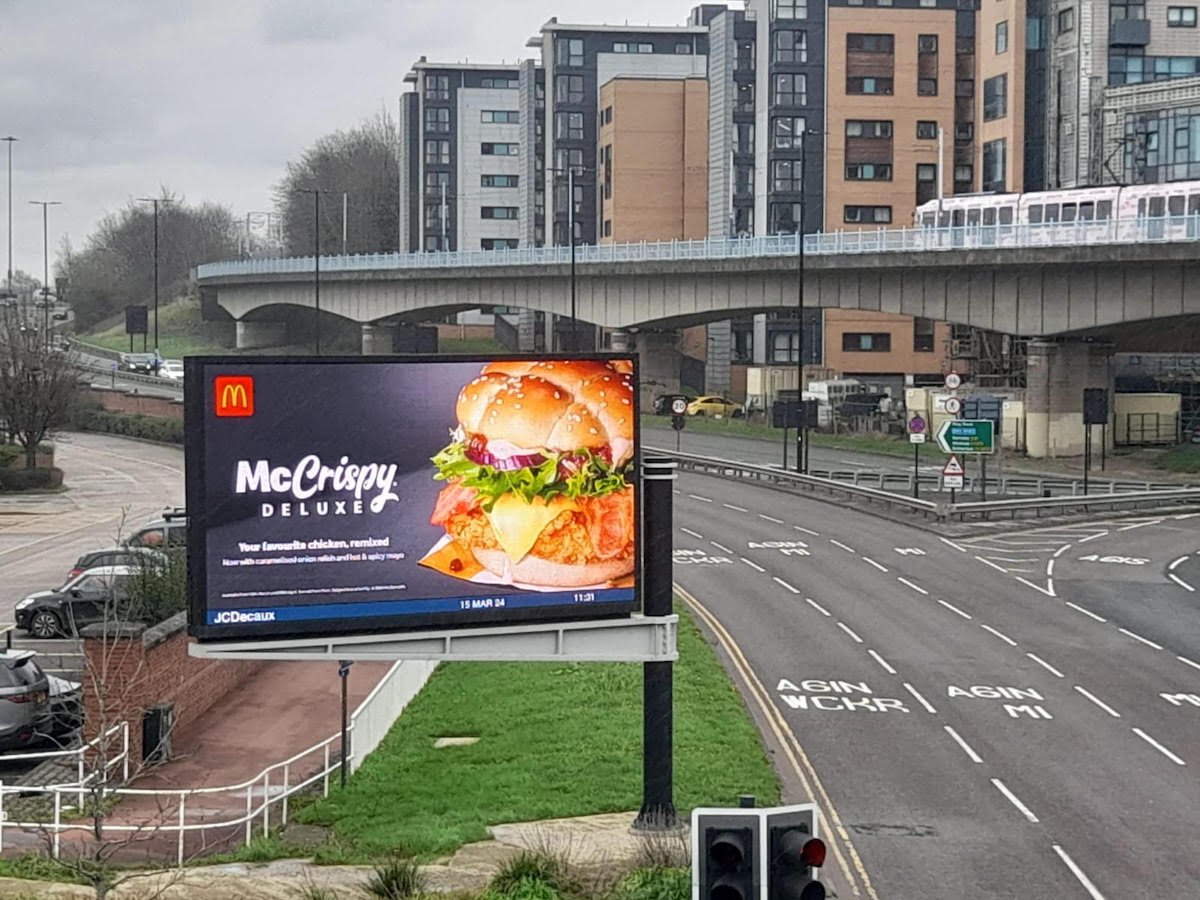Sheffield kicks out polluting ads in groundbreaking new policy
In a tangible step towards a greener, healthier city with lower air pollution, Sheffield City Council is calling time on advertising and sponsorships that fuel the climate emergency.
Adverts for a wide range of polluting products and brands, including airlines, airports, fossil fuel-powered cars (including hybrids) and fossil fuel companies, will not be permitted on council-owned advertising billboards under the new Sheffield City Council Advertising and Sponsorship Policy. The council’s social media, websites, publications and any sponsorship arrangements will also be subject to the restrictions.
Sheffield Green Party councillor Marieanne Elliot, who supported the policy, said: “Introducing this policy is a strong move for Sheffield as it tackles some of the impacts of consumerism, advertising and injustice. If we seriously want to move away from greenwashing and promoting products and foods that are making our health worse and negatively affecting our wellbeing we need policies like this.
“If I were to draw out any areas for improvement, I’d like to see restrictions on fossil fuel financiers like the big banks – Barclays and HSBC for example.”
This breaks new ground in the UK, with Sheffield going further than any other council to remove polluting promotions. Sheffield declared a climate emergency in 2019, alongside many other local councils. This step demonstrates a real commitment to reducing emissions, driving down air pollution, and encouraging a shift towards lower-carbon lifestyles.
Protecting health and wellbeing
The policy also restricts the promotion of gambling, alcohol, vaping and unhealthy food, and explicitly aims to protect against the disproportionate impact of unhealthy advertising on lower income communities and young people. Recent research by Adfree Cities showed that advertising billboards are overwhelmingly concentrated in communities with higher social deprivation.
By including specific criteria that prioritises small local businesses, the policy also aims to protect Sheffield's local economy. After consultation with other councils and outdoor advertising companies, Sheffield’s Finance Committee concluded that the financial impact of the policy was likely to be low (approx. £14,000-£21,000) compared to the costs incurred via pressures on the NHS and other services.
“Reducing this type of consumption supports a preventative approach to health and wellbeing improvement, resulting in less support and intervention being needed, and ultimately reducing pressure on health & social care services.” Section 5.5, “Other Implications”, Finance Committee report, March 18th 2024.
Andrew Simms, co-director of the New Weather Institute and a founder of the Badvertising campaign said, “This carefully considered policy echoes measures to end tobacco advertising. It is not only one of the easier actions to tackle a public health and climate emergency, but helps make council policy coherent in supporting multiple local improvements. Other local authorities wanting similar benefits should be forming a queue to follow in Sheffield’s pioneering steps.”
Unhealthy food advert in Sheffield, March 2024.
What have other councils done?
Restrictions on advertising for fossil fuels is now policy at Cambridgeshire County Council, Coventry City Council and Basingstoke and Deane Borough Council. Somerset Council has restricted adverts for other polluting products as well as fossil fuels, including cars and airlines, on roundabout signs only. Several other local authorities have policies in place awaiting implementation.
Ireland leads the way on national policy
Sinn Féin, the largest party in opposition in Ireland, introduced a bill to parliament to end fossil fuel advertising in March 2024. On introducing the Bill, Deputy Paul Murphy said: “Tobacco advertising and sponsorship were banned because of the clear link between smoking and illness, disease and death. It is time to do exactly the same with the advertising of fossil fuels, fossil fuel vehicles and flights.”
Commenting on the new policy, Annie Feetham, who lives in Burngreave ward in Sheffield, said: “Everyday as I walk to work through Burngreave and into the City Centre, I am faced with a constant bombardment of information, all fighting for my attention and persuading me to buy or pollute.
“Advertising has become so ingrained into our communities that I often don’t consciously acknowledge that I have seen them, but they have an incredibly negative impact on our mental wellbeing, influencing our thoughts and behaviours and distracting us at every turn.
“Sheffield Council has a bold history of leading change, and I am delighted that they have taken this opportunity to creatively imagine a better city. A city where commercial gain takes a backseat to community values, where these spaces are repurposed for things like art, community events and wildlife.”



